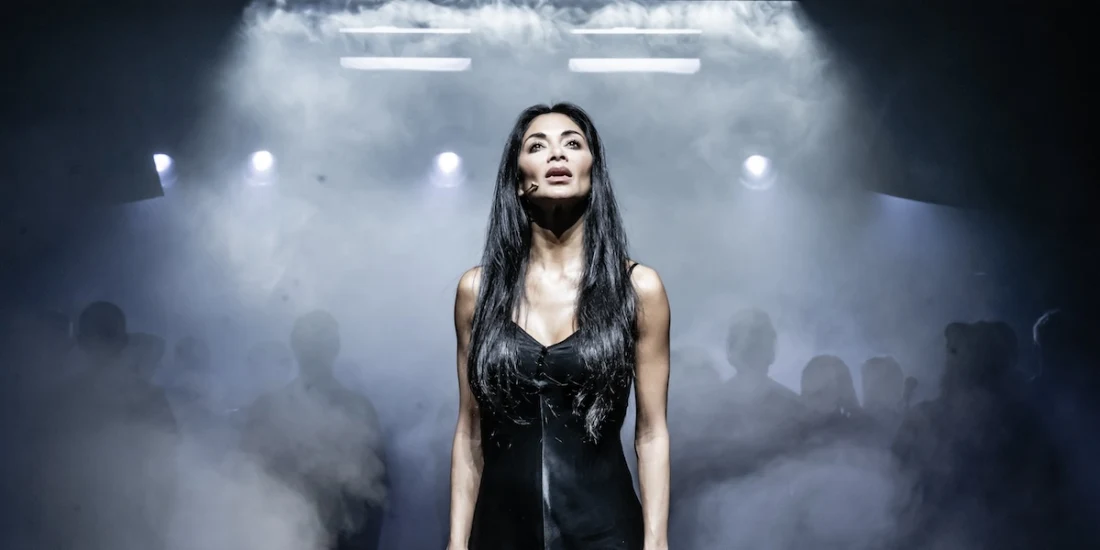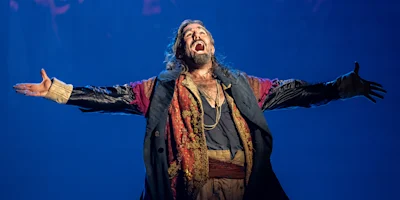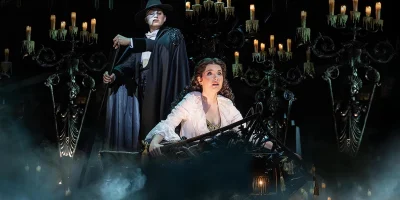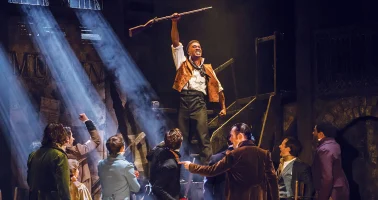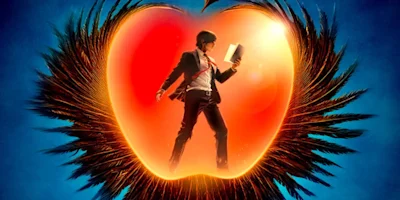
Reflecting on the Olivier Awards 2024
With wins for Sunset Boulevard and Dear England, the West End’s biggest night offered inspiration to theatremakers nationwide. Read our rundown of the Olivier Awards 2024.
In April, I was delighted to attend the 2024 Olivier Awards with Mastercard, the largest annual celebration of West End theatre. The audience of over 5,000 at the Royal Albert Hall included nominees, industry professionals and enthusiastic supporters such as myself; and the global audience, watching either via online feed or the subsequent televised highlights, far outnumbered us. What we all witnessed was an evening in which each win felt like a victory for the British theatre industry.
The biggest prize for new musicals went to the plucky Operation Mincemeat, the unbelievably true story of a World War II deception mission brought to the stage with high-paced hilarity. The show started life as a pitch at BEAM, a biennial showcase of developing musicals, and forged a steady path to victory via fringe and Off-West End theatres, first programmed by David Byrne at the New Diorama before finding fans at Southwark Playhouse (where I first saw and loved it) and Riverside Studios. Days before the ceremony, I listened as the show’s writers joined Byrne, now Artistic Director of the Royal Court, at the UK Musical Theatre conference to share the story of their success. That this story now ends with an Olivier is a remarkable encouragement to emerging theatremakers nationwide.
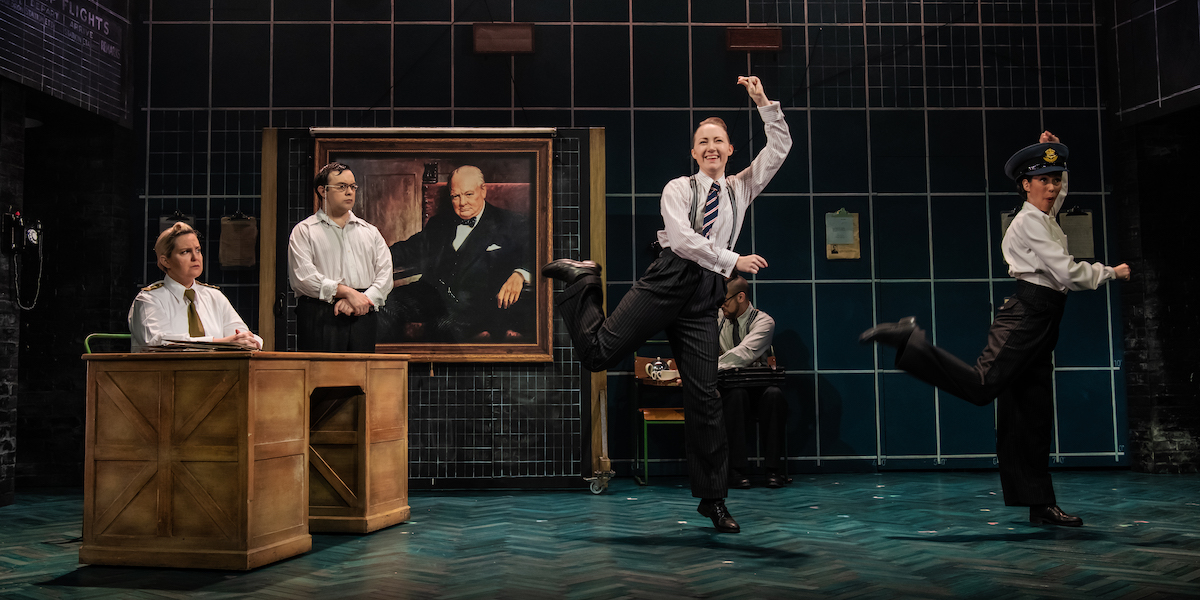
Significant wins for Stranger Things: The First Shadow (Best New Entertainment or Comedy Play), and Dear England (Best New Play), are also to be celebrated for their ability to bring new audiences to London’s theatres. While the stage adaptation of the Netflix series continues to see hardcore fans flying in from all over, Dear England playwright James Graham gave football and theatre fans some of their first common ground since sharing GCSE classes. The curation of new audiences is an increasingly vital element of future-proofing theatre, as well as a reminder that compellingly good stories can come from unexpected places.
Jamie Lloyd’s reimagined revival of Andrew Lloyd Webber’s Sunset Boulevard scooped many of the night’s awards. Lloyd himself won as the sole director of a musical, which I’m bold enough to say is a triumph for musical theatre at a ceremony that has a tendency to prioritise the straight play. His creative collaborators who won for musical contribution (musical director Alan Williams), lighting design (Jack Knowles), and sound design (Adam Fisher) were key in proving the value of reinventing classic material and taking bold, creative strides.
I will add that the production was celebrated for its use of onstage cameras to offer this Hollywood-set story an appropriate cinematic focus, and the video design team of Nathan Amzi and Joe Ransom, relegated to a shared category with set design, did not win. As I see more productions that make extensive use of cameras and video design (notably The Picture of Dorian Gray and Opening Night), this omission makes a compelling case for a separate category.
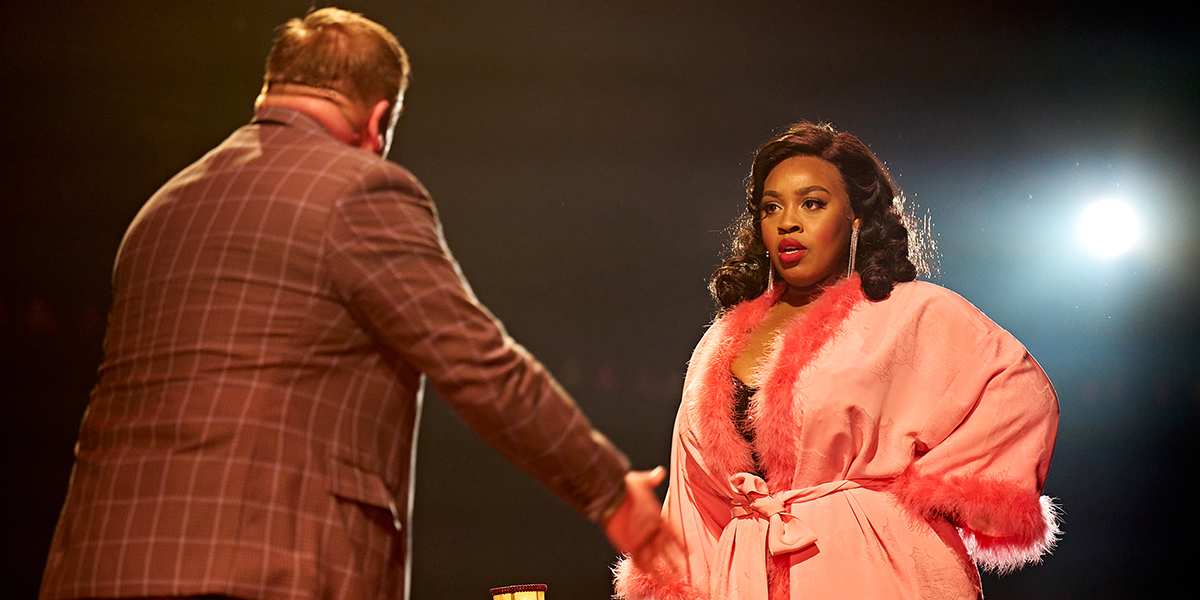
One victorious creative offered even more inspiration, however, as Dame Arlene Phillips, with her praised associate James Cousins, accepted the Olivier for their choreography of the Bridge Theatre’s immersive new take on Guys & Dolls. When she revealed that, at 80, this was her first bona fide win, the ensuing standing ovation was one of stunned realisation. I’d suggest that this indicates it’s never too late to find success, but in reality it’s the Oliviers who are sheepishly late in recognising this Dame’s enormous contribution to theatre.
In acting talent, we saw worthy nominees crowned with Mark Gatiss as Best Actor amid huge competition from James Norton, Joseph Fiennes, David Tennant, and Andrew Scott. Gatiss’s portrayal of legendary actor Sir John Gielgud was a sensitive, human, and modest turn while, contrastingly, Sarah Snook won for a herculean feat in The Picture of Dorian Gray, portraying each of the novel’s characters in turn, often with herself as a pre-recorded screen partner.
The supporting categories for acting in a play saw Haydn Gwynne (who sadly passed away in October 2023) posthumously awarded, as well as Will Close, whose tickling impersonation of Harry Kane in Dear England gave way to a heartbreaking study of repressed vulnerability. With this, the Oliviers took the opportunity to promote Close to the premier league of acting while saluting Gwynne for a lifetime of truly memorable performances (for my part, her unforgettable take on Margaret Thatcher in The Audience).
For the graduate actors, idols could be found in Jak Malone, who didn’t have an agent when first cast in Operation Mincemeat, as well as Tom Francis, landing a leading role in Sunset Boulevard only a few years after making his professional debut as Roger in the Hope Mill’s Rent. Francis also delivered the most memorable musical performance, recreating his viral rendition of the title song, Sunset Boulevard, originally performed around the perimeter of the Savoy Theatre and recreated on the steps of the Royal Albert Hall. Broadway fans eagerly anticipate his stateside performance at the St James Theatre, and I will absolutely be buying plane tickets.
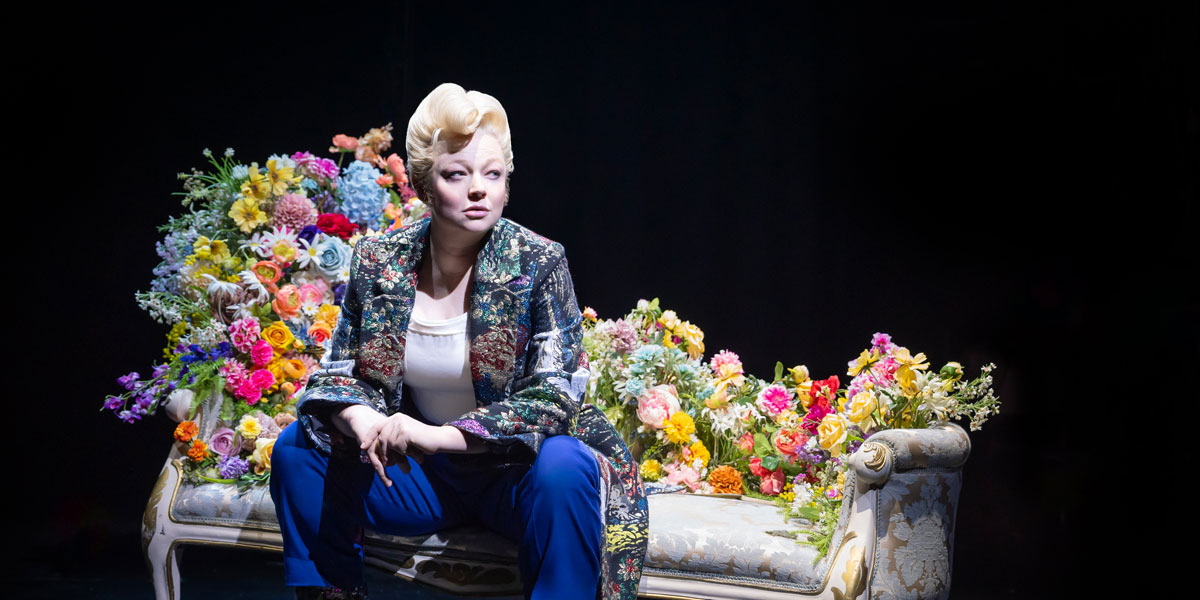
Flying the flag for the veteran performers, Nicole Scherzinger’s win defied those who had initially decried her casting, and her thanks to director Jamie Lloyd – who, she shared, “saw me for me” – made a powerful argument for casting talent beyond type. Then there’s Amy Trigg, whose magnetic role in The Little Big Things offered sublime representation to wheelchair users, a disabled actor portraying a disabled character with effortless charm, authenticity and comic flair. In the weeks approaching the Oliviers, I saw more comments hoping for a win for Trigg than for any other nominee; the consensus was that she was simply sensational.
Even the evening’s host, the glorious Hannah Waddingham, gave us cause to celebrate. A genuine West End veteran, when she shared personal congratulations to an arriving winner or recalled a memory of the artists for whom an award was named, she proved herself a vital member of the theatrical community. Of course, fans such as myself who had the chance to enjoy her performances in Spamalot, A Little Night Music, Into the Woods, Kiss Me, Kate, and The Wizard of Oz in London before she found global fame as an award-winning television star, needed no proof.
Even with such glittering success stories, there remains room for us to push forward – by specifically acknowledging the work of musical theatre composers and book writers, by including wigs, hair, and make-up among those eligible for accolades, and by diversifying the industry onstage and off, so that next year’s awards reflect a true range of remarkable theatrical talent. In the meantime, I can’t wait to enjoy what is already shaping up to be another thrilling year of London Theatre.
Originally published on
